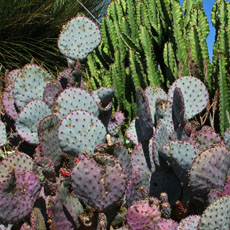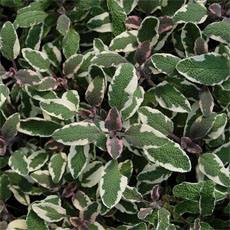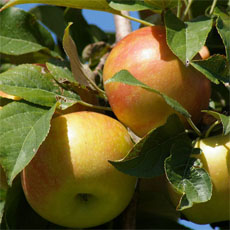Many foods are often associated with the holidays and are enjoyed by millions every winter near the New Year. Some of these foods, it turns out, though seemingly safe for us humans, may not be so for our pets. The following is a brief overview of some foodstuffs of plant origin that are potential toxins for your dog or cat.

 Cocoa tree
Cocoa tree
Just about everyone knows now of the dangers of chocolate to their pets. Though not restricted of course to the holidays, chocolate seems to be on every shelf in every store selling holiday foods and treats. There are several compounds in chocolate toxic to pets and all seem to affect the heart and gastrointestinal tract. This is a ‘dose-dependent’ poisoning, meaning the more pure chocolate that is ingested, the more serious the toxicity. A large dog eating a small milk chocolate candy or cookie is at very little risk of becoming toxic thanks to that pet’s size and the small amount of actual chocolate in milk chocolate. Still, there is some risk of diarrhea and even vomiting. But a smaller pet eating dark, or even worse, baking chocolate, is very likely to suffer serious and even potentially fatal effects. As a veterinarian I must have treated hundreds and hundreds of potential chocolate poisonings, but thankfully only a handful have ended up with any serious symptoms. I have seen several dogs die from eating boxes of holiday chocolates. This is probably one of the most common encountered of all poisonings by small animal veterinarians. And most cases of poisoning were not from owners giving their pets chocolate, but of the pets helping themselves. So please keep chocolate candies, drinks, baking and especially the concentrated products themselves far from the reach of pets- preferably on high shelves, the middle of tables, in refrigerators or latched cabinets. I have heard hundreds of excuses from ‘I had no idea he would climb on the table to eat that cake’ to ‘why would she eat baking chocolate? It doesn’t even taste good!’ Chocolate tastes GREAT to dogs (not so much to cats)… but chocolate can be deadly.
Related to chocolate, at least in terms of the active toxic compounds, are coffees and teas. Both may contain large amounts of caffeine which is similarly toxic to pets. Though less likely to be ingested plain, sweetened deserts and drinks containing coffee or tea, very popular during holiday season, can be very attractive to pets (even cats if milk is added) and potentially with very serious consequences.



photo credits: Farmerdill, Todd_Boland and Xenomorph
Another relatively common toxicity in pets is that of onions and garlic. Unlike the case with chocolate and coffee poisonings, onion and garlic poisonings are usually due to owners intentionally, though ignorantly, feeding these products to their pets. Very few dogs or cats will seek out onion or garlic to ingest… but hidden in cooking or ‘natural medicines’, these items may readily be ingested by your pets. Onions and garlic are very common seasonings and even major ingredients in a lot of holiday recipes. Though, like the above foodstuffs, these toxicities are certainly not limited just to the holidays. And it makes no difference if they are cooked, raw, powdered, in oils etc. All forms are toxic. For some reason, though it has been proven over and over again not to be the case, some owners purposefully feed their pets garlic thinking it will have some effect against fleas (I guarantee you that it does NOTHING for flea protection). Over time, onions in a pet’s diet can lead to stomach and intestinal damage. Acutely it causes a hemolytic anemia (destroys the blood cells) and animals can suffer or perish from lack of oxygen to the brain, as well as develop problems that affect clotting, and they can bleed excessively. I have seen at least one dog die from eating onions on a pizza (ate the entire thing, I guess). And I have seen several cats being fed food with garlic in them show some signs of anemia and gastrointestinal damage. Thankfully, this, too, is a dose dependent toxicity so small amounts of these foodstuffs will not likely cause serious sudden problems. But unlike the case with chocolate or coffees, the effects of chronic onion or garlic ingestion can be additive over time and lead to long term poisoning problems. There will always be controversy over the actual amount of garlic it takes to make a dog sick and some dogs seem to be able to tolerate fairly large amounts before developing seriouis anemia, while others require very little. The benefits of garlic in pets is not clear and no studies have been done to show that there are any (certainly none to show any control of parasites), but there are those that will continue to argue and claim it is a great natural flea or parasite deterent despite any evidence to back them up. Use caution if you feel so impelled to use something like garlic in your pet dog! So before giving your pet the holiday meatloaf or stew leftovers, think hard whether onions or garlic were put in your dinner. And avoid giving your pets any ‘natural’ products or treatments that have these items in the ingredients.


Photo on left by htop
Nuts are often purchased and eaten during the holidays. For some reason, Macadamia nuts have some toxic principle for dogs. The exact cause is still not known. This is NOT necessarily a dose-related toxicity. In other words a large dog may become seriously poisoned by a fairly small amount of nuts, while a small dog eating a lot more nuts may be less affected, or even unaffected. Most affected dogs rapidly develop severe weakness to the point of being unable to stand up, and are vomiting. Thankfully, most poisoned dogs recover without any permanent problems. But still it is wise not to feed your pet macadamia nuts or allow cookies, cakes or candies with these nuts in such a place your dog can discover them. This IS one they will seek out and intentionally ingest.
 photo by philomel
photo by philomel
A lot of holiday deserts contain raisins, which are also toxic to dogs (unknown about cats as cats do not eat raisins or grapes very often). It can take as little as just over ½ oz. of grapes to poison a 10 lb dog. Though not all dogs seem to suffer the effects of eating grapes and raisins, those that do will suffer severe and possible permanent kidney damage if not treated immediately. Since the exact toxic dose is unknown, and even the cause of the kidney failure is still unclear, it is recommended not to feed your dog ANY grapes or raisins. So again be careful about leaving fruit cakes and other holiday deserts or fruit baskets where dogs can get to them. Dogs WILL seek this poisonous food out!
And though not necessarily associated with the holidays, much partying goes on this time of year, and sometimes marijuana gets baked into holiday brownies as a means of celebration. Marijuana is surprisingly number one on the ASPCA’s list of 10 most common plant poisons for dogs. Though no deaths have been recorded in dogs directly attributable to cannabis, many poisoned dogs have been reported with dizziness, weakness, low body temperatures, manic behavior etc. and some have gotten so weak and nauseous that they vomited and aspirated (inhaled) their vomit and became critically ill with pneumonia. Though dogs rarely will eat marijuana plain, they will readily devour brownies with it in them. Please be careful if celebrating and you own a pet!
The holidays are fraught with many dangers for both people and our pets. But poisoning of your pets from any of the above food-stuffs is an easily avoided situation if you are aware and take precautions. For more information about pet poisons, visit the ASPCA website:
http://www.aspca.org/site/PageServer?pagename=pro_apcc_poisonsafe
thanks to WUVIE for the garlic photo at the top of the article


















